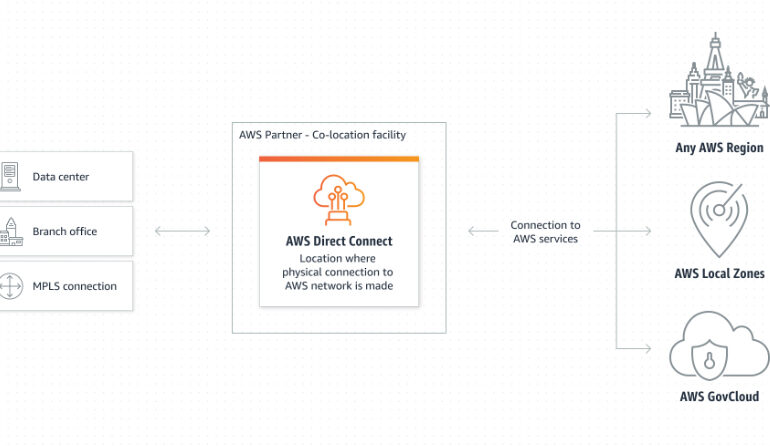Why small businesses should deploy a VoIP solution

Are you a small business owner looking for ways to improve efficiency and cut costs? Look no further than Voice over Internet Protocol (VoIP) technology. In today’s fast-paced and ever-changing business landscape, small businesses need flexible and cost-effective communication solutions. That’s where VoIP comes into play.
VoIP allows you to make and receive phone calls using the internet instead of traditional phone lines. By using the power of the internet, small businesses can enjoy crystal-clear voice quality, advanced features, and significant cost savings. Whether you have a remote workforce or multiple office locations, VoIP brings all your communication needs together in a single platform.
In this article we will discuss the following key areas:
- Understanding the benefits of VoIP for small businesses
- Cost savings and scalability with VoIP
- Improved flexibility and mobility
- Enhanced communication features with VoIP
- Factors to consider when choosing a VoIP solution for your small business
- Steps to deploying a VoIP solution
- Common challenges and how to overcome them
- VoIP security and privacy concerns
Understanding the benefits of VoIP for small businesses
VoIP offers a range of benefits that can greatly impact the success of small businesses. One of the most significant advantages is cost savings. Traditional phone systems can be expensive to install and maintain, especially if you have multiple lines and locations. With VoIP, you eliminate the need for physical phone lines and reduce your monthly phone bill.
Another benefit of VoIP is scalability. As your small business grows, your communication needs will evolve. VoIP allows you to easily add or remove phone lines as required, without the need for complex infrastructure changes. This flexibility ensures that your communication system can grow with your business, saving you time and money in the long run.
Cost savings and scalability with VoIP
When it comes to small businesses, every penny counts. With VoIP, you can significantly reduce your communication costs. Traditional phone systems often require expensive hardware, maintenance fees, and long-distance charges. VoIP, on the other hand, utilizes your existing internet connection, eliminating the need for additional infrastructure costs.
Scalability is another major advantage of VoIP for small businesses. As your business expands, adding new phone lines or extensions is as simple as a few clicks. This flexibility allows you to scale your communication system to meet your evolving needs without incurring hefty installation or upgrade costs. Whether you have one employee or hundreds, VoIP can accommodate your growing business.
Improved flexibility and mobility
In today’s increasingly remote work environment, flexibility and mobility are essential for small businesses. VoIP enables you to work from anywhere with an internet connection. Whether you’re in the office, at home, or on the go, you can stay connected with your team and clients seamlessly.
With VoIP, you can take advantage of advanced mobility features such as call forwarding, simultaneous ringing, and virtual extensions. These features ensure that you never miss an important call, regardless of your location. Whether you’re travelling for business or working from home, you can stay connected and maintain a professional image.
Enhanced communication features with VoIP
VoIP offers a wide range of communication features that can enhance your small business’s efficiency and customer service. Features like call forwarding, voicemail-to-email transcription, and auto-attendant enable you to manage and prioritize your calls effectively.
Call forwarding allows you to redirect incoming calls to any device or location, ensuring that you’re always accessible to your clients. Voicemail to email transcription converts voicemail messages into text and sends them directly to your email inbox, allowing for easy organization and retrieval. Auto-attendant greets callers and provides them with menu options, ensuring a professional and efficient call experience.
Factors to consider when choosing a VoIP solution for your small business
When selecting a VoIP solution for your small business, there are several factors to consider. First and foremost, you need to assess your business’s specific communication needs. Are you a single location business or do you have multiple offices? Do you have remote employees or a mobile workforce? Understanding your requirements will help you choose a VoIP solution that aligns with your business goals.
Next, consider the reliability and quality of the VoIP service provider. Look for a provider that offers a robust infrastructure, reliable customer support, and high call quality. Reading reviews and seeking recommendations from other small businesses can help you make an informed decision.
Steps to deploying a VoIP solution
Deploying a VoIP solution for your small business involves several steps. First, you need to assess your current network infrastructure and ensure that it can support VoIP traffic. This may involve upgrading your internet connection or implementing Quality of Service (QoS) measures to prioritize voice traffic.
Next, you’ll need to choose a VoIP service provider and sign up for their services. The provider will guide you through the setup process, which typically involves configuring your phones, creating extensions, and setting up call routing rules.
Once your VoIP system is set up, it’s crucial to train your employees on how to use the new system effectively. This includes familiarizing them with the features and providing them with the necessary training materials. Ongoing support and training will ensure that your employees can take full advantage of the benefits that VoIP offers.
Common challenges and how to overcome them
While VoIP offers numerous benefits, there can be some challenges associated with its deployment. One common challenge is ensuring call quality and reliability. Factors such as internet bandwidth, network congestion, and equipment quality can impact the performance of your VoIP system. To overcome these challenges, it’s important to work with a reliable service provider and assess your network infrastructure to ensure it can handle the demands of VoIP.
Another challenge is ensuring security and privacy. VoIP calls can be vulnerable to eavesdropping and hacking if proper security measures are not in place. It’s essential to choose a VoIP provider that offers encryption and other security features to protect your calls and data.
VoIP security and privacy concerns
Security and privacy are critical considerations when deploying a VoIP solution for your small business. VoIP calls are transmitted over the internet, making them potentially susceptible to interception and unauthorized access. However, by implementing robust security protocols and encryption measures, you can protect your calls and sensitive data.
When choosing a VoIP provider, make sure they offer secure communication channels and have a strong track record in safeguarding customer information. Additionally, educate your employees about best practices for securing their VoIP devices and accounts, such as using strong passwords and regularly updating software.
Conclusion: Embracing the future of communication with VoIP
In conclusion, small businesses can benefit greatly from deploying a VoIP solution. With cost savings, scalability, flexibility, and enhanced communication features, VoIP provides the tools necessary to streamline your communication processes, increase productivity, and enhance customer service.
When choosing a VoIP solution, consider your specific business needs and the reliability and quality of the service provider. Take the necessary steps to deploy your VoIP system, including assessing your network infrastructure, choosing a provider, and training your employees.
While there may be challenges associated with VoIP deployment, such as call quality and security concerns, these can be overcome with proper planning and implementation. By embracing the future of communication with VoIP, small businesses can position themselves for success in today’s digital age.








































